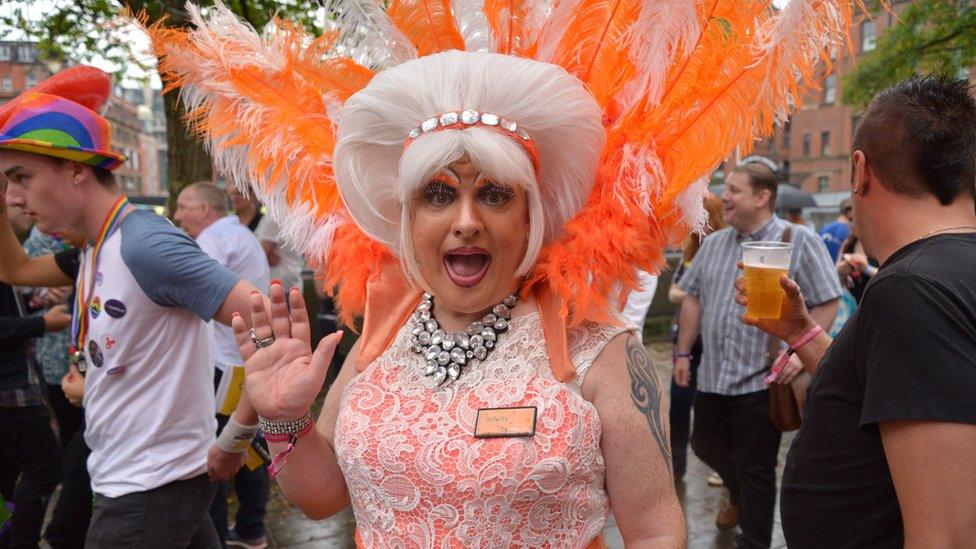Pride 2023: 'In Manchester I can be the best version of myself'
- Published
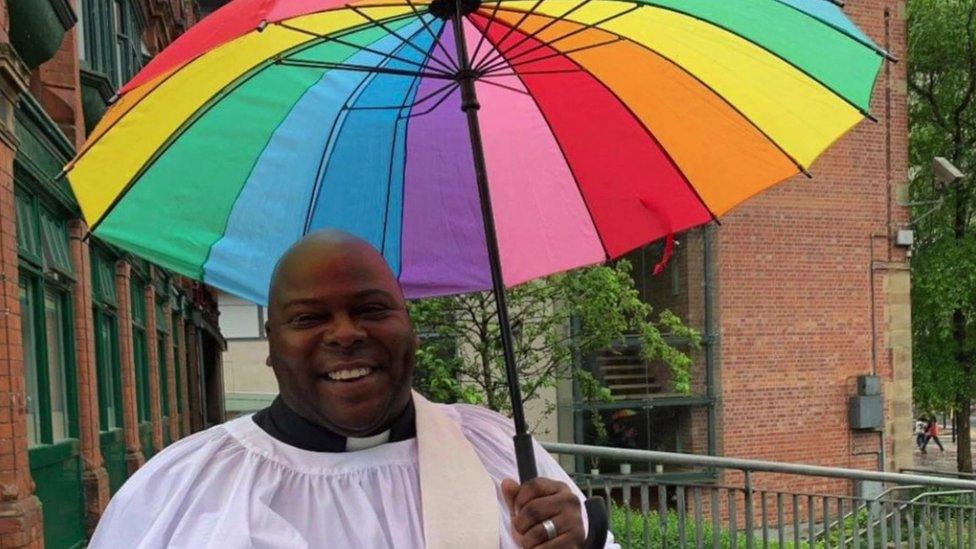
Dr Augustine Tanner-Ihm says he can be "proud and glorious" in Manchester
The streets of Manchester have been adorned in rainbow decorations as Pride celebrations return to the city.
The annual four-day event will see thousands of revellers descend on the city's Gay Village over the August bank holiday weekend.
In celebration, three people, from the North West of England, have opened up about the importance of Pride and why it means so much to them.
"Here in Manchester, I can be the best version of myself," said Dr Augustine Tanner-Ihm, who is a member of the clergy at St James and Emmanuel Church in Didsbury.
"Fully me - out, proud and glorious."
Dr Tanner-Ihm, who is originally from Chicago, has been living in Manchester for the past two-and-a-half years.
"Experiencing racism or experiencing homophobia or experiencing xenophobia, I've experienced it all," he said.
"One thing that has been really interesting for me is here I'm fully embraced for who I am.
"And there's something about the Pride community, the queer community here in Manchester, that makes it so much different than anywhere around the world."
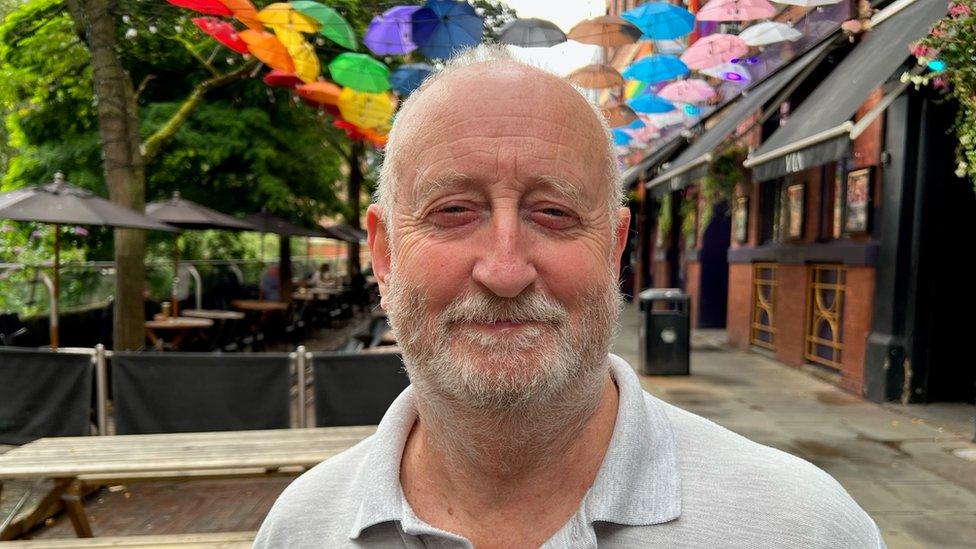
David Taylor said the Pride celebrations were "one of the biggest events in the year"
David Taylor, from Manchester, said the Pride celebrations, which he first attended in the 1990s, helped him to be his true self.
"When I was younger, it was very difficult to come out as gay," he said.
"It was easier with Pride. People started to realise what Pride was and they could then understand that this was you."
Mr Taylor, who started a Scottish country dancing group in Manchester called the Gay Gordons, said he knew he was gay from around the age of 15.
"It was difficult to come out when I was in Scotland," he said.
"We would go to bars then be asked not to come back.
"When I moved down to Manchester, of course, you had the gay scene.
"Things have changed dramatically. People can come out a lot more easier now."
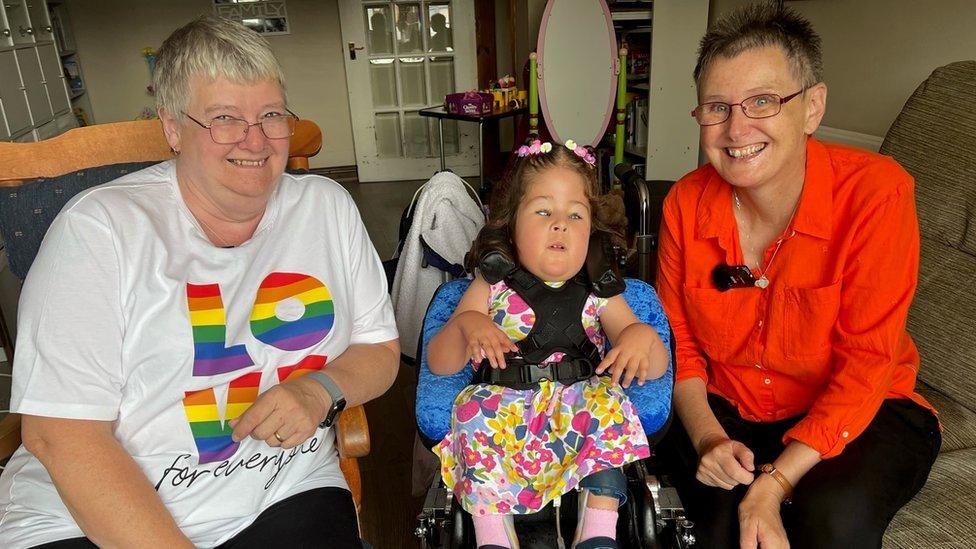
Barbara and Alison Petit said the celebration was about visibility
Barbara Petit, from Leyland, Lancashire, who has adopted three children with her wife, told BBC North West Tonight Pride celebrated "what we have and the freedoms we have" as well as recognising "that other people don't have that same freedom".
"It is also for our children to say there are a lot of people who have two mummies or two daddies," she said.
"Pride is the day of visibility. It's an opportunity to say 'we are a community where we're just like you guys, we do all the same things you do, we have all the same hopes and dreams for our children'."
Her wife Alison Petit added: "And also to be able to be flamboyant and be yourself.
"We're not trying to be straight or trying to fit in - that we are who we are."

Why not follow BBC North West on Facebook, external, Twitter, external and Instagram, external? You can also send story ideas to northwest.newsonline@bbc.co.uk
Related topics
- Published29 August 2022
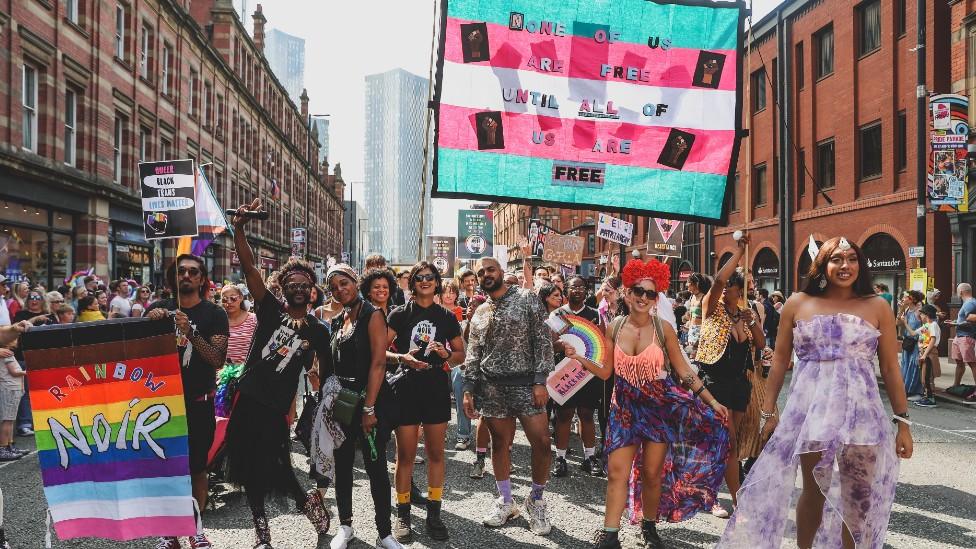
- Published14 February 2022
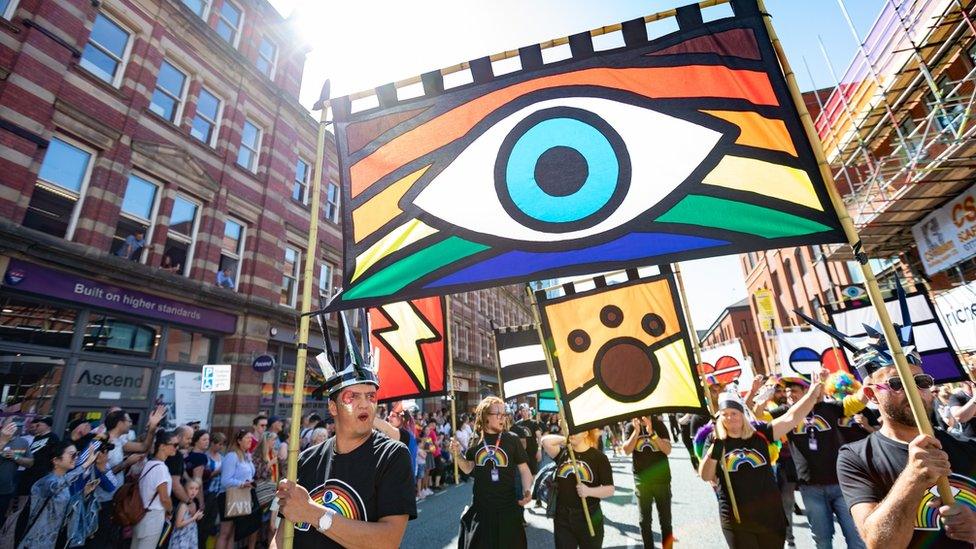
- Published28 August 2021
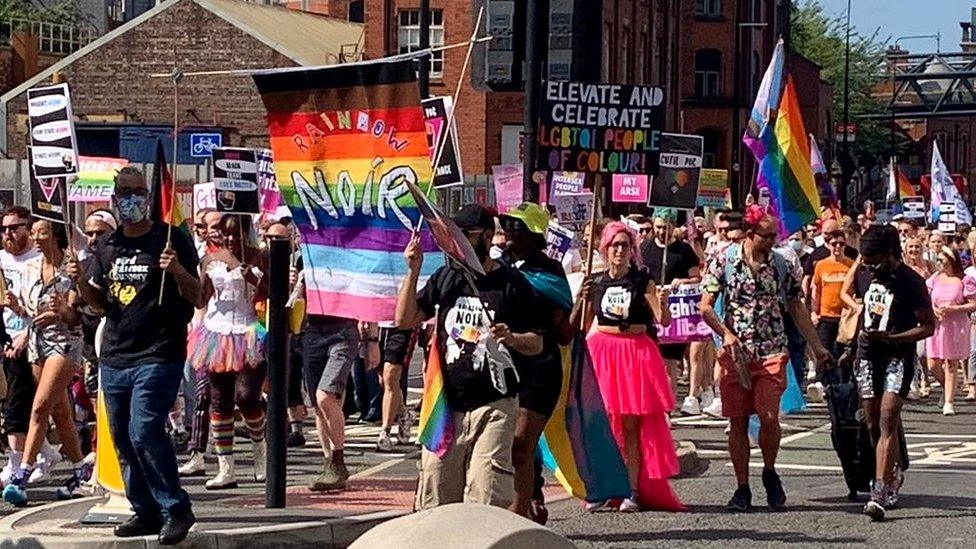
- Published4 August 2021
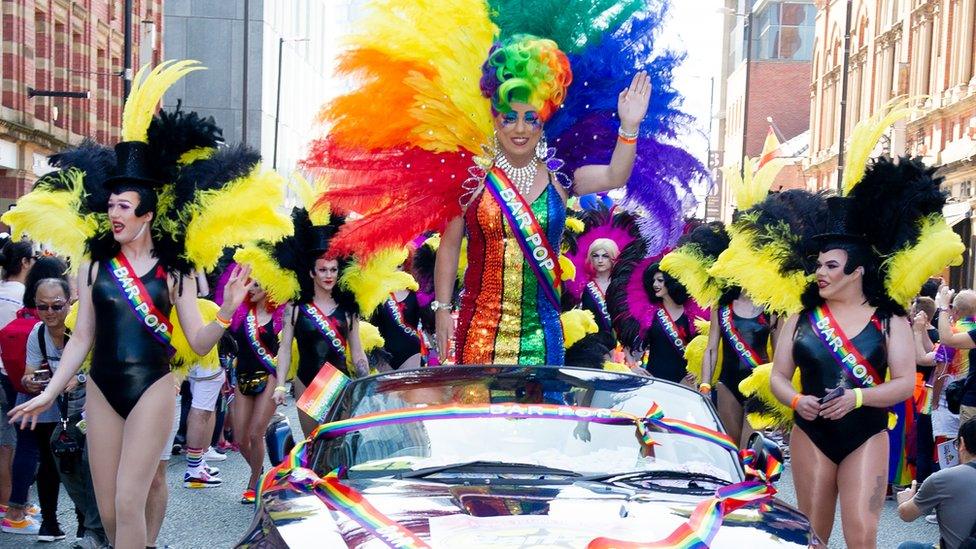
- Published26 February 2021
